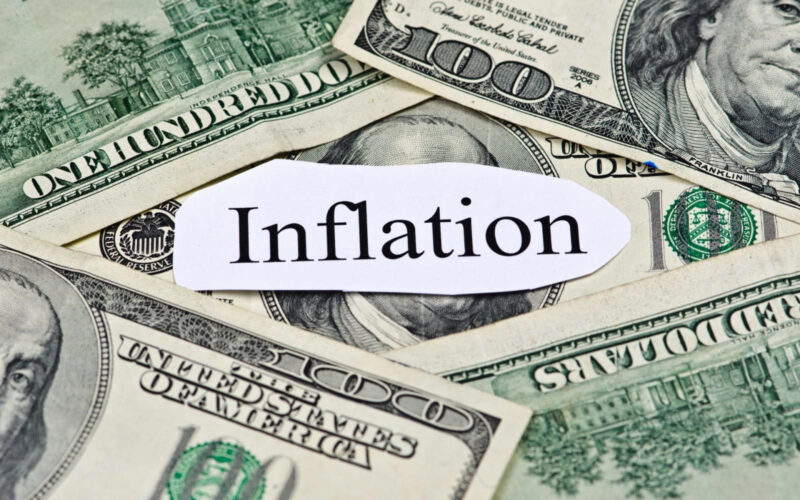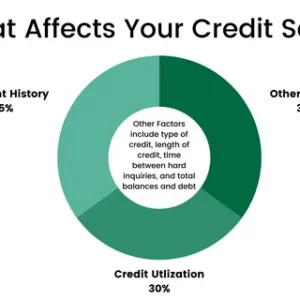

Introduction: When Prices Rise, Stability Falls
Imagine walking into a grocery store in Lagos or Accra and realizing yesterday’s shopping budget buys only half the goods today. That’s the cruel reality of inflation across Africa. Prices surge, salaries stay the same, and savings quietly lose their worth. For millions of Africans and their families abroad, the big question is simple: how do you protect your money during inflation surges?
Inflation is not just an abstract economic term—it’s a direct hit on people’s wallets, savings, and dreams. This guide explores the pain points and offers practical, easy-to-apply solutions to help you stay ahead of rising costs whether you live in Africa, Canada, or the USA but support family back home.
Understanding Inflation in Plain Terms
Inflation happens when the prices of goods and services rise, making money less valuable over time. If you earned $500 a month last year, it might have covered food, rent, and transport. This year, the same $500 barely stretches across food and utility bills.
Pain Points of Inflation
- Shrinking savings: Cash left idle loses buying power fast.
- Rising daily costs: Transport, food, healthcare, and housing drain more from monthly budgets.
- Unstable investments: Local stock markets tumble under inflation pressure.
- Mental stress: Families constantly worry about meeting basic needs.
In short, inflation robs you silently, and unless you shield your finances, you’ll feel poorer even if your income doesn’t change.
Why Africa Faces Recurring Inflation Surges
Africa’s inflation surges are not random—they follow patterns driven by local and global forces.
Key Causes
- Currency devaluation: Weakening local currencies raise import prices.
- Global oil shocks: Many African nations import refined fuel. Higher oil prices mean higher transport and food costs.
- Political instability: Poor policies, corruption, and elections often trigger economic uncertainty.
- Import dependence: Africa imports essentials like rice, wheat, and medicine, making prices vulnerable.
For example, Zimbabwe experienced inflation exceeding 200% in 2020, while Nigeria has struggled with food inflation above 30% in 2024. Ghana’s inflation has swung wildly too, affecting food and fuel prices.
According to the World Bank, these recurring patterns make inflation a structural problem rather than a temporary one.
Pain Points for Ordinary Families
Inflation creates a domino effect that hits every corner of life.
- Food insecurity: Staple foods like bread, maize, and rice become unaffordable.
- Rent pressure: Landlords adjust rent to “catch up” with rising costs.
- Schooling sacrifice: Parents withdraw children from private schools to cut costs.
- Health risks: People skip hospital visits or medication to save money.
These pain points reveal why financial protection strategies aren’t optional—they’re essential.
Smart Strategies to Protect Your Money
Now let’s focus on solutions. Here are proven ways to shield your money when inflation rises.
1. Diversify Your Savings
Keeping all your money in local currency is dangerous during inflation. Diversify to cushion the impact.
- Multi-currency accounts: Hold savings in USD, CAD, or EUR.
- Digital wallets: Platforms like Wise or Payoneer let you save in stable currencies.
- Stablecoins: For tech-savvy individuals, cryptocurrencies pegged to USD (like USDT) offer protection.
Example: A Nigerian saving ₦1 million in naira may lose value quickly, while the same amount saved in USD remains stable.
2. Prioritize Essential Investments
Inflation-proof investments help money retain value.
- Real estate: Property appreciates even when currencies weaken.
- Agriculture: Investing in food production pays off when food prices surge.
- Gold and metals: Precious metals historically shield wealth.
Case Study: In Zimbabwe, families who bought farmland during inflation surges later saw their land value triple while cash savings evaporated.
3. Cut Debt and Avoid High-Interest Loans
Inflation makes debt repayment painful.
- Pay off high-interest loans early.
- Refinance loans in stable currencies if possible.
- Avoid borrowing for luxuries—focus on needs.
Tip: In high-inflation countries, debt linked to foreign currencies becomes crippling if the local currency weakens.
4. Budget Like a Pro
Budgeting isn’t about restriction; it’s about survival.
- List essential vs. non-essential expenses.
- Trim luxuries like fast food and unnecessary subscriptions.
- Use budgeting apps like Mint, YNAB, or local fintech apps.
Checklist for Monthly Budgeting:
- Rent/Housing
- Food/Groceries
- Transportation
- Utilities
- Savings
- Education/Healthcare
5. Build Emergency Savings
Inflation shocks require fast-access funds.
- Aim for 3–6 months’ worth of expenses.
- Keep part in USD/CAD, part in local currency for daily use.
- Store in liquid accounts, not locked investments.
6. Seek Side Income Opportunities
Relying on one job or business is risky.
- Freelancing: Platforms like Upwork and Fiverr let Africans earn in USD.
- Remote jobs: IT, marketing, or customer service jobs abroad pay better.
- Small businesses: Food vending, farming, or transport remain resilient.
Diaspora Edge: Africans in Canada or the USA can build online businesses that support families back home while earning in stronger currencies.
7. Invest in Knowledge and Skills
Skills grow even when currencies shrink. Upskilling ensures long-term protection.
- Learn digital skills (coding, data analysis, digital marketing).
- Explore trades (plumbing, electrical, farming).
- Attend free online courses (Coursera, edX).
Inflation cannot devalue knowledge—it only increases its demand.
Quick Comparison: Best Strategies at a Glance
| Strategy | Inflation Protection | Risk Level | Accessibility |
|---|---|---|---|
| Real Estate Investment | High | Medium | Medium |
| Holding USD/EUR Savings | High | Low | Medium |
| Gold/Precious Metals | High | Low | Medium |
| Agriculture/Food Business | Medium-High | Medium | Medium |
| Local Stock Market | Low | High | Medium |
| Freelance Side Hustle | Medium-High | Medium | High |
| Emergency Savings | High | Low | High |
Inflation and the African Diaspora
If you live in Canada or the USA, you still feel Africa’s inflation indirectly. Why? Because remittances lose power.
- $100 in 2022 may have bought food for 3 weeks.
- $100 in 2025 might only last 1 week.
How to Help Family Back Home
- Send money in USD or CAD instead of local currency.
- Encourage relatives to invest in assets, not cash.
- Support income-generating ventures rather than one-time handouts.
Platforms like Remitly make it easier to transfer value in strong currencies rather than unstable local ones.
Building a Long-Term Safety Net
Inflation surges will return—it’s not a matter of “if” but “when.”
Long-Term Moves
- Emergency savings fund in multiple currencies.
- Mixed investments across real estate, agriculture, and stable assets.
- Insurance cover for health, property, and life.
- Financial literacy education for family members.
Think of it as preparing for storms—you can’t stop them, but you can reinforce your financial shelter.
Psychological Side of Inflation
Money stress causes anxiety, fights, and despair. Protecting your mindset is as important as protecting your wallet.
- Talk openly with family about finances.
- Avoid panic spending when prices rise suddenly.
- Celebrate small wins like saving a little more each month.
Mental resilience ensures you don’t give up even when times are tough.
Conclusion: Turning Pressure into Preparedness
Africa’s inflation surges are harsh, but you’re not powerless. By diversifying savings, investing wisely, cutting debt, and earning in stronger currencies, you can stay ahead.
Inflation may shrink your money, but preparation multiplies your financial strength. Protect your wealth today so tomorrow’s challenges don’t rob your peace.
FAQs
1. What is the safest currency to save in during African inflation surges?
The US dollar and euro are generally safer because they hold their value against most African currencies.
2. Can gold really protect me during inflation?
Yes. Gold and silver rise in value when paper currencies lose power, making them classic hedges.
3. Should I invest in local stocks during inflation?
It’s risky. Local stock markets often crash under inflation pressure. Balance with global assets or safer options.
4. How much emergency savings should I keep?
Keep at least 3–6 months’ living expenses in stable currencies like USD, CAD, or EUR.
5. What’s the best way to send money to family during inflation?
Use digital transfer platforms that allow remittances in USD/CAD so your family retains more purchasing power.






